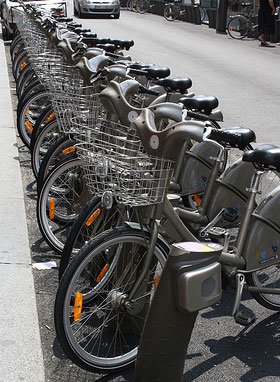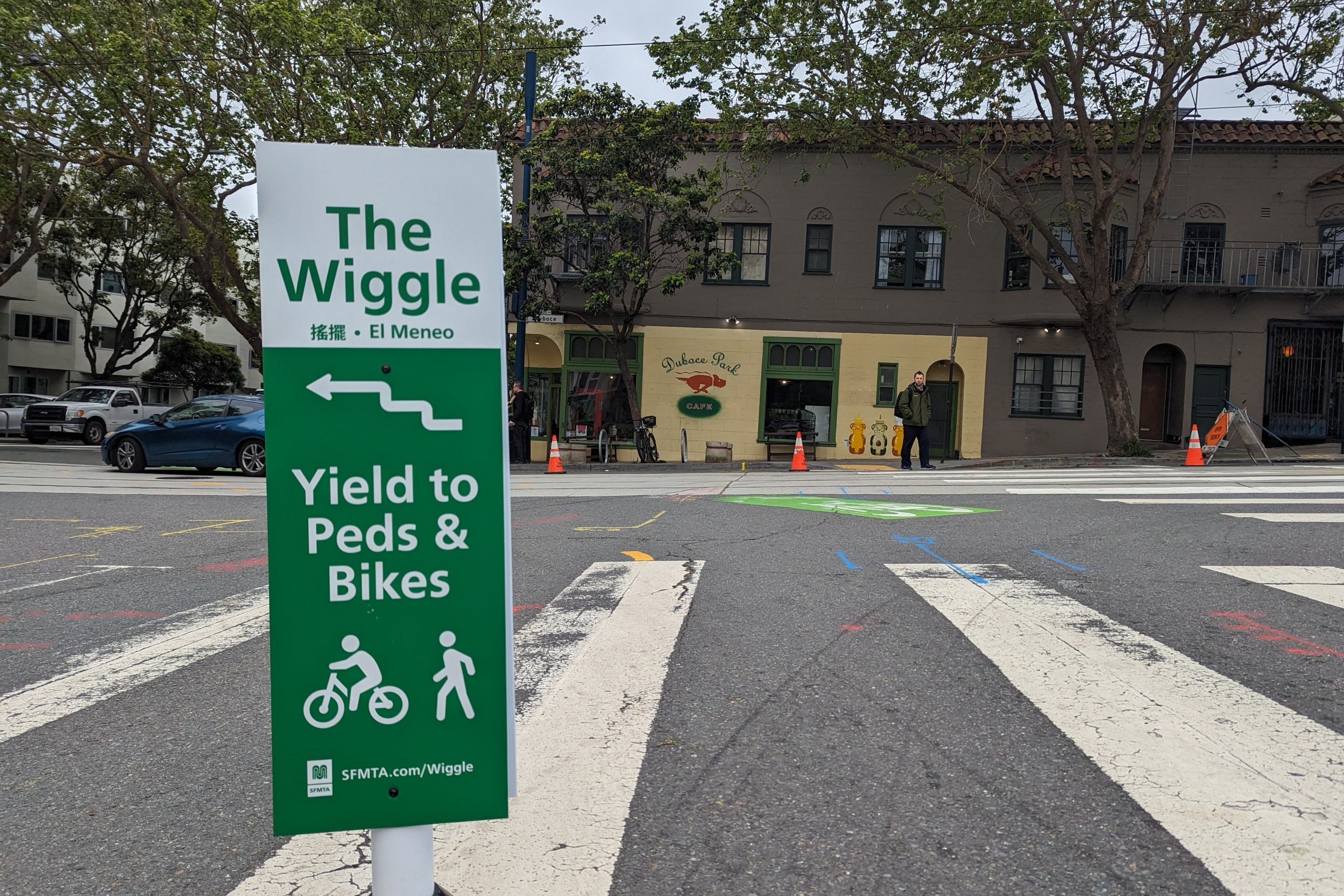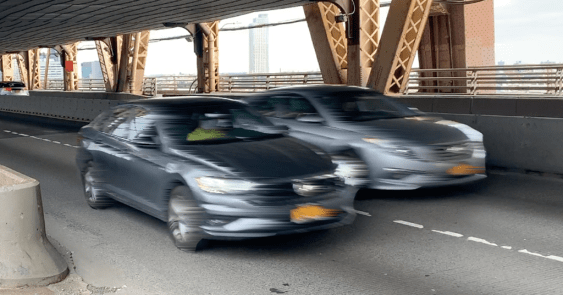MTC Grant Will Fund Expanded Regional Bike Share Program
5:49 PM PDT on October 27, 2010

Getting to work or school in the Bay Area by shared bicycle could be a reality soon, as the Metropolitan Transportation Commission (MTC), the Bay Area's regional transportation planning body, awarded more than $4 million to a regional bike share program as part of $33 million for a host of innovative projects around the Bay Area meant to reduce driving and curb emissions.
The MTC has made a small but significant first step in addressing the greenhouse gas reduction targets mandated under SB375 and AB32. MTC Executive Director Steve Heminger acknowledged the connection between funding innovative pilots and the 15 percent per capita greenhouse gas reduction target adopted by the California Air Resources Board (CARB) for the Bay Area by 2035.
In his routine report to commissioners, Heminger said the MTC was the last of the four major municipal planning organizations to adopt the SB375 Sustainable Communities Strategies targets, so they had "the luxury of learning from everyone else's mistakes." Still, he argued, "we are off to the races."
Today's $33 million in Climate Initiatives Program grants go to projects that were ranked based on cost and benefit analysis, as well as potential for innovation. The regional bike share program piggybacks off the Santa Clara Valley Transit Authority (VTA) bike share pilot, which has been in development for more than a year. VTA secured a $500,000 grant from Regional Measure 2's Safe Routes to Transit program to fund design and capital costs for an initial deployment of approximately 100 bikes. VTA had convened a working group and a feasibility study and had enlisted the support of private sector employers, such as Google, Apple, Adobe and Cisco.
"VTA is committed to smart, sustainable strategies that invest in the urban cores and transit corridors that promote walking, bicycling and transit," said VTA Board Chair and San Jose City Council M ember Sam Liccardo. "The pilot bike-share program will make the commute for Santa Clara County residents greener and more affordable."
With the $4.29 million MTC grant announced today, the program will increase to approximately 1,000 bicycles at up to 100 kiosk stations, including nearly 500 bikes at 50 kiosks in San Francisco and the remaining 500 at Caltrain stations in Redwood City, Mountain View, Palo Alto, and San Jose. The VTA will coordinate with the San Francisco Municipal Transportation Agency (SFMTA), the Bay Area Air Quality Management District (BAAQMD), SamTrans, San Mateo County and Redwood City. The total project cost is approximately $7 million with $1.4 million in funding provided by the BAAQMD and $1.3 million in funding from the other partners.
"Bike sharing that works regionally as well as in San Francisco will provide greater connectivity and make the system more useful," said San Francisco Mayor Gavin Newsom. "As bicycling increases in San Francisco and the Bay Area, key projects like this will encourage others to add bicycling to their travel solutions."
In the Bay Area, the transportation sector accounts for more than 50 percent of air pollution. While smaller bike share programs in the United States have failed to transform their host cities like Paris' Velib or Barcelona's Bicing programs, U.S. cities have been jumping at the opportunity to add publicly accessible bicycles to their transit profile.
"The SFMTA is proud to work with its regional partners on this important effort to increase bicycling,” said SFMTA CEO Nat Ford. "Services like bike sharing will strengthen San Francisco’s and the region’s sustainable transportation network."
Because the program is now regional, VTA's initial timeline to implement bike sharing in 2010 has been pushed back significantly. According to VTA spokesperson Brandi Childress, the program would likely not go online until early to mid 2012. Despite this, said Childress, the VTA and its partners believe they can address the last-mile problem with bicycles, thus eliminating the situation where core transit lines are often just far enough from people's homes that driving appears to be a more convenient option, even for those seeking to minimize their environmental footprint.
“Innovative programs like bike-sharing solve the problem for those people who want to take transit but can’t quite make that last mile or so of the transit trip work for them," said Childress. "That connection and confidence needs to be there to make public transportation more competitive to the automobile.”
Stay in touch
Sign up for our free newsletter
More from Streetsblog San Francisco
Commentary: There is Zero Ambiguity to the West Portal Tragedy
What happened in West Portal was entirely predictable and preventable. The city must now close Ulloa to through traffic and make sure it can never happen again
Independent Safety Advocates Beef up the Wiggle
Signs and soft-hit posts installed by advocates make the Wiggle bike route calmer and safer for cyclists and pedestrians




